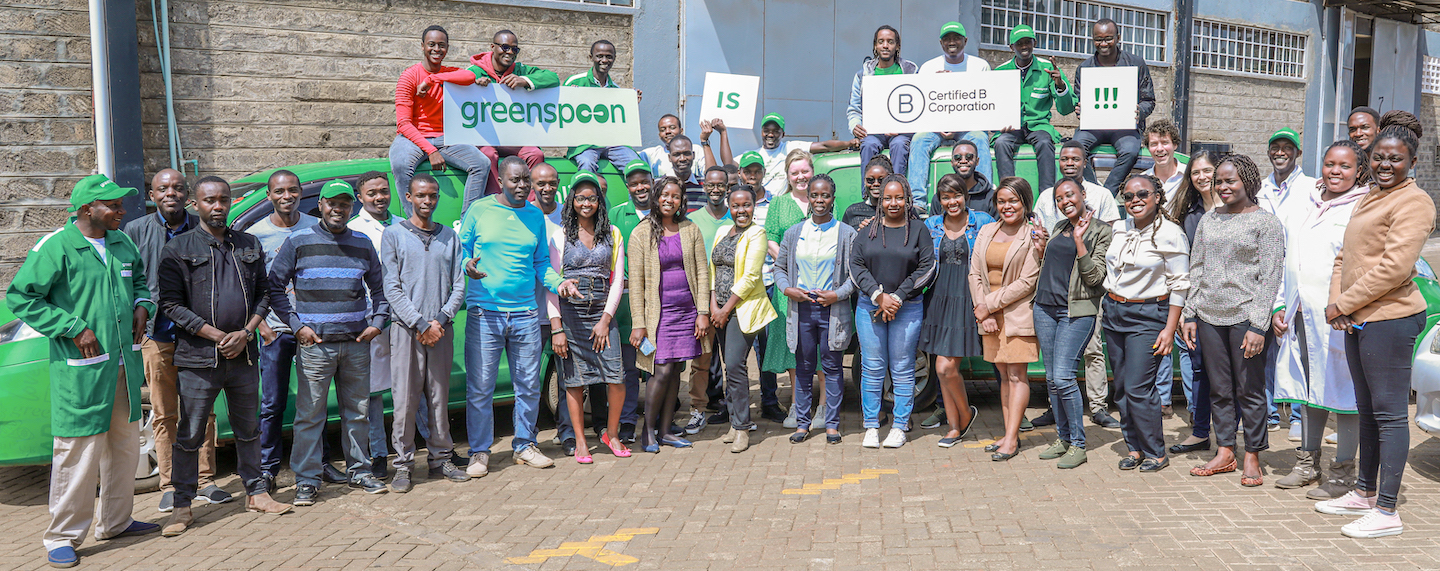

Greenspoon Ltd

Nairobi, Kenya
November 2022
Food products
Wholesale/Retail
Kenya
Honestly Delicious! Greenspoon exists to provide a new kind of grocery shopping experience in Kenya, one that's transparent, safe, delicious, and built on sustainability. Food can change the world when people and planet come first. When Juliet was weaning her first child, she realized there was no easy way to shop safely and sustainably, so she set out on a mission to find Kenya's best producers and bring them to the Greenspoon platform. Every product on Greenspoon is vetted for quality, social impact, and environmental impact, and considered within the prism of what makes the world a better place. Greenspoon's commitment to being a business for good shows in everything they do: circular economy with packaging returns, Kenya's only electric delivery vehicles and bikes, working with suppliers to reduce packaging, donating food waste to black soldier fly projects to turn into animal feed, recycling cardboard and paper waste into toilet paper and serviettes and much more. Becoming a B Corp is a milestone for Greenspoon, and a commitment they are excited to honour and grow over the coming years.
Overall B Impact Score
Governance 14.7
Governance evaluates a company's overall mission, engagement around its social/environmental impact, ethics, and transparency. This section also evaluates the ability of a company to protect their mission and formally consider stakeholders in decision making through their corporate structure (e.g. benefit corporation) or corporate governing documents.
What is this? A company with an Impact Business Model is intentionally designed to create a specific positive outcome for one of its stakeholders - such as workers, community, environment, or customers.
Workers 22.8
Workers evaluates a company’s contributions to its employees’ financial security, health & safety, wellness, career development, and engagement & satisfaction. In addition, this section recognizes business models designed to benefit workers, such as companies that are at least 40% owned by non-executive employees and those that have workforce development programs to support individuals with barriers to employment.
Community 22.0
Community evaluates a company’s engagement with and impact on the communities in which it operates, hires from, and sources from. Topics include diversity, equity & inclusion, economic impact, civic engagement, charitable giving, and supply chain management. In addition, this section recognizes business models that are designed to address specific community-oriented problems, such as poverty alleviation through fair trade sourcing or distribution via microenterprises, producer cooperative models, locally focused economic development, and formal charitable giving commitments.
What is this? A company with an Impact Business Model is intentionally designed to create a specific positive outcome for one of its stakeholders - such as workers, community, environment, or customers.
Environment 20.6
Environment evaluates a company’s overall environmental management practices as well as its impact on the air, climate, water, land, and biodiversity. This includes the direct impact of a company’s operations and, when applicable its supply chain and distribution channels. This section also recognizes companies with environmentally innovative production processes and those that sell products or services that have a positive environmental impact. Some examples might include products and services that create renewable energy, reduce consumption or waste, conserve land or wildlife, provide less toxic alternatives to the market, or educate people about environmental problems.
Customers 3.2
Customers evaluates a company’s stewardship of its customers through the quality of its products and services, ethical marketing, data privacy and security, and feedback channels. In addition, this section recognizes products or services that are designed to address a particular social problem for or through its customers, such as health or educational products, arts & media products, serving underserved customers/clients, and services that improve the social impact of other businesses or organizations.